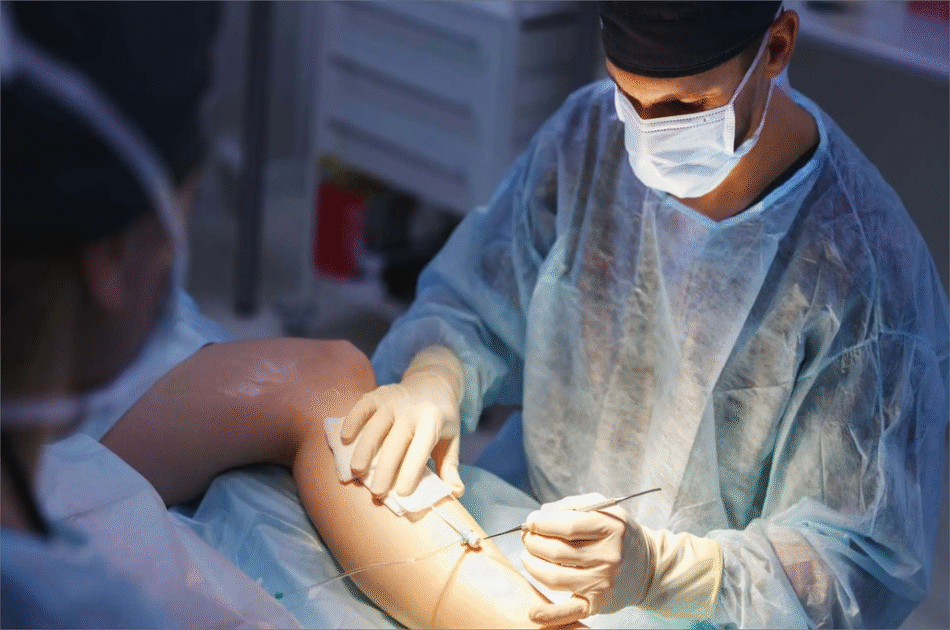Introduction
High-quality vascular care is essential for treating conditions that affect arteries, veins, and the lymphatic system. Vascular Surgery in Abu Dhabi and advanced healthcare facilities provide patients access to modern technologies, experienced specialists, and integrated care pathways. Safe and effective vascular procedures are available locally, addressing a wide range of vascular diseases with a focus on precision, safety, and long-term patient health.
Understanding Vascular Procedures
Vascular procedures treat disorders of blood vessels, which include arteries, veins, and lymphatic vessels. Common conditions treated include peripheral artery disease, aortic aneurysms, deep vein thrombosis, carotid artery disease, and varicose veins. These procedures may be minimally invasive or traditional open surgeries, depending on the condition, its severity, and the patient’s overall health.
Minimally invasive techniques often reduce recovery time and complication risks, while traditional open surgery remains essential for complex cases that cannot be treated through endovascular methods.
Why Abu Dhabi for Vascular Care
Advanced Specialist Teams
Healthcare centers in Abu Dhabi have multidisciplinary teams that include vascular surgeons, interventional radiologists, imaging specialists, and critical care professionals. These teams collaborate to create tailored treatment plans based on the patient’s condition, age, and overall health.
Cutting-Edge Technology
Abu Dhabi hospitals use advanced imaging technologies and hybrid operating rooms, allowing precise intervention for complex vascular conditions. Tools such as CT angiography, MR angiography, duplex ultrasound, and minimally invasive stents enhance procedural accuracy and safety.
Patient-Centered Approach
Patient care is comprehensive and individualized, starting from assessment, diagnostics, treatment, and follow-up. Specialists in Abu Dhabi emphasize both technical precision and compassionate care, ensuring that patients are supported throughout their treatment journey.
Types of Vascular Procedures
Endovascular Procedures
Endovascular procedures are minimally invasive and involve inserting a catheter into the blood vessel to treat the affected area. Techniques include angioplasty, stenting, and graft placement. These procedures often lead to faster recovery and shorter hospital stays compared to open surgery.
Open Surgical Repair
Open surgery involves direct access to the blood vessel to repair or replace it. This approach is typically used for complex aneurysms, severe blockages, or conditions that cannot be treated endovascularly. Open surgery remains highly effective for long-term vessel repair.
Venous Procedures
Venous interventions treat conditions such as varicose veins, venous insufficiency, and deep vein thrombosis. Methods include laser ablation, radiofrequency ablation, sclerotherapy, and vein reconstruction for more severe cases. These procedures improve blood flow and prevent long-term complications.
Carotid and Peripheral Artery Treatments
Blockages in the carotid arteries, which supply blood to the brain, or peripheral arteries in the legs and arms, can be treated with angioplasty, stenting, or bypass surgery. These procedures restore blood flow, reduce risk of stroke, and improve mobility.
Safety and Effectiveness
Experienced Specialists
Procedures performed by trained vascular and endovascular specialists ensure high safety standards. Abu Dhabi centers emphasize multidisciplinary care to manage complex cases effectively.
Advanced Monitoring and Technology
The use of modern technology, including high-resolution imaging and minimally invasive tools, enhances procedural precision. Hybrid operating rooms allow for both open and endovascular procedures to be performed safely under optimal conditions.
Personalized Treatment Planning
Treatment is tailored to each patient’s condition, anatomy, and overall health. Specialists consider all options, from conservative management to surgical intervention, ensuring the safest approach is chosen.
Structured Follow-Up
Effective vascular care includes follow-up imaging, risk factor management, and lifestyle guidance. Regular monitoring after procedures ensures long-term results and helps prevent recurrence or new vascular complications.
Patient Experience
Initial Assessment
Patients begin with a consultation, medical history review, and diagnostic imaging to assess the severity and location of vascular disease. This allows specialists to plan the most appropriate treatment approach.
Treatment Process
Depending on the chosen procedure, patients may undergo minimally invasive endovascular treatment or open surgery. Minimally invasive procedures often result in quicker recovery and shorter hospital stays. Open surgery may require longer recovery periods but is essential for complex cases.
Recovery and Follow-Up
Post-procedure care includes monitoring, mobility guidance, wound care instructions, and follow-up imaging. Specialists provide individualized plans for returning to daily activities and maintaining long-term vascular health.
Frequently Asked Questions
What conditions are treated with vascular procedures?
Vascular procedures treat arterial and venous conditions such as peripheral artery disease, aneurysms, carotid blockages, varicose veins, and deep vein thrombosis.
Are minimally invasive procedures safer than open surgery?
Minimally invasive procedures often have shorter recovery times and less discomfort, but open surgery is necessary for more complex or advanced vascular conditions.
How soon can I resume normal activities?
Recovery time varies based on the procedure type and patient health. Minimally invasive treatments usually allow faster return to normal activities, while open surgery may require more time.
How long do results last?
With proper follow-up care and management of risk factors, vascular procedures can achieve long-term results. Regular check-ups and imaging help maintain vascular health.
Can multiple vascular issues be treated simultaneously?
Yes, multidisciplinary teams in Abu Dhabi coordinate care for patients with multiple vascular conditions, ensuring a comprehensive treatment plan.
Conclusion
Vascular procedures in Abu Dhabi are delivered with a combination of specialist expertise, modern technology, and patient-centered care. From minimally invasive treatments to open surgical repair, patients can access safe and effective options for managing vascular diseases. Early diagnosis, personalized treatment plans, and structured follow-up ensure optimal outcomes and long-term vascular health.
 WhatsApp Us Now
WhatsApp Us Now










